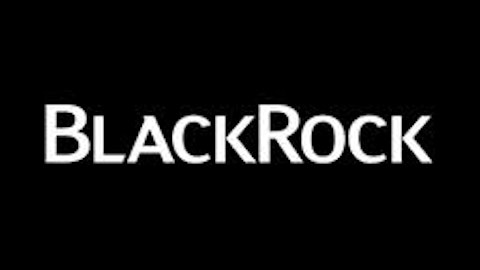The world’s largest hedge fund, Bridgewater Associates, is based in Westport, Connecticut, and was founded by super-investor Ray Dalio in 1975. From the firm’s headquarters in the heart of hedge fund country, Dalio and his team oversee in excess of $140 billion in investments for institutions such as pensions, endowments and foundations. According to financial blog ZeroHedge, around $61 billion of the assets under management at Bridgewater are allocated to its Pure Alpha actively traded fund.
Although the firm is secretive, its success has been attributed to a unique culture which emphasizes internal transparency, meritocracy, and a flat corporate structure. According to profiles of Bridgewater, frank criticism and rigorous questioning are encouraged at the fund and even junior employees can challenge superiors so long as they can back up their assertions with facts.
Ray Dalio – Market oracle
Bridgewater’s almost unparalleled track record also is a reflection of Dalio’s quirky brilliance as both an investor and a manager. Born in Queens, New York, the hedge fund trader has been called the “Steve Jobs of investing” for his unique approach and staggering success. Dalio, who was among the one hundred richest people in the world in 2012, began investing even before his 13th birthday according to a New York Magazine profile and has always been fascinated by markets.
He matriculated at Long Island University and later earned an MBA at Harvard. In his early years, Dalio worked on the floor of the New York Stock Exchange before becoming a commodity futures trader. Readers who are interested in learning more about Dalio’s unique outlook on the markets, management and life in general, should read his treatise entitled “Principles,” which can be found on Bridgewater’s homepage.
Bridgewater’s secret sauce
Of course, when discussing Bridgewater, the million dollar question is “just how do they do it?” Meaning how has the world’s largest hedge fund managed to post average annualized net returns of 14% over a 22-year track record in its Pure Alpha portfolio? Although many funds may be able to boast a better absolute return figure, Dalio and company have achieved these results with a massive capital base in recent years and very little correlation to the S&P 500.
While a definitive answer to that question is elusive, there are plenty of hints about what goes into Bridgewater’s secret sauce. The fund employs a macro strategy, making big bets on stocks, bonds, currencies and commodities across global markets. Bridgewater is research driven and its roughly 1,300 employees represent one of the world’s most formidable sources of policy and economic analysis.
Trading With an edge across the world
Former Fed Chairman Paul Volcker was quoted by the Economist saying that the hedge fund has “a bigger staff, and produces more relevant statistics and analyses, than the Federal Reserve.” A combination of deep fundamental research along with the use of cutting edge quantitative investment methods has made Bridgewater the favored hedge fund of institutional investors.
The exotic nature of its Pure Alpha global macro strategy can be seen in this graph posted at ZeroHedge. The diagram highlights the ninety-five trades made by the firm in December 2012, and breaks them down based on return. The diversity of asset classes and geographies in which Bridgewater actively trades is extremely illuminating.
Bridgewater’s 13F – Macro Strategy Relies on Big ETF Bets
Another source that sheds light on the hedge fund’s strategy is its quarterly 13F report, outlining the firm’s long equity portfolio of securities listed on U.S. exchanges. Its most recent 13F offers a snapshot of the portfolio as of March 31. Interestingly, Bridgewater owned quite a few stocks at the end of the first-quarter, but the individual positions were so small as to be nearly inconsequential in terms of the firm’s assets under management.
Although the total value of the equity positions detailed in its 13F was around $11 billion, its largest single stock holding was Microsoft at just a little over $40 million. Its other “large” single stock positions included CenturyLink, Inc. (NYSE:CTL), CVS Caremark Corporation (NYSE:CVS), EMC Corporation (NYSE:EMC), Express Scripts Holding Company (NASDAQ:ESRX), F5 Networks, Inc. (NASDAQ:FFIV), Intel Corporation (NASDAQ:INTC), Juniper Networks, Inc. (NYSE:JNPR), Lockheed Martin Corporation (NYSE:LMT), and Oracle Corporation (NASDAQ:ORCL). The vast majority of the portfolio was invested in just three ETFs, which are detailed below.
iShares MSCI Emerging Markets Indx (ETF) (NYSEMKT:EEM) – This fund run by BlackRock tracks the price and yield performance of the MSCI Emerging Markets Index. The index is comprised of publicly traded equities in global emerging markets. As of March 31, Bridgewater’s position in the ETF was valued at just under $3 billion. Assuming that the hedge fund is still holding this position, Bridgewater’s total stake in the ETF is roughly 6.2% of its net asset value.
Compared to the U.S. stock market, the ETF has been a disappointment in recent quarters. Year-to-date, EEM is down almost 12% and over the last 52-weeks the exchange traded fund has risen only 3% compared to a return of almost 22% for the S&P 500. Nevertheless, this is exactly the kind of security that individual investors should be holding in order to gain exposure to emerging markets. The inherent advantages of this ETF are its passive investment strategy, minimal fees, liquidity, and yield of just under 2%.
SPDR S&P 500 ETF Trust (NYSEARCA:SPY) – This is the world’s largest and most liquid ETF. The fund tracks the price and yield performance of the S&P 500. As of its most recent 13F filing, Bridgwater held a roughly $3.3 billion position in the trust. Although it may seem bizarre for one of the world’s most sophisticated hedge funds to be dumping money into a passive index ETF like SPY, once again, retail investors should be following Bridgewater’s lead.
In fact, for the vast majority of investors, this is a must own security and should comprise a substantial portion of equity investments. Again, the inherent advantages of the ETF are its passive investment strategy and low fees, making it preferable to most actively managed mutual funds. At current levels, SPY also provides a nice dividend yield of around 2%.




